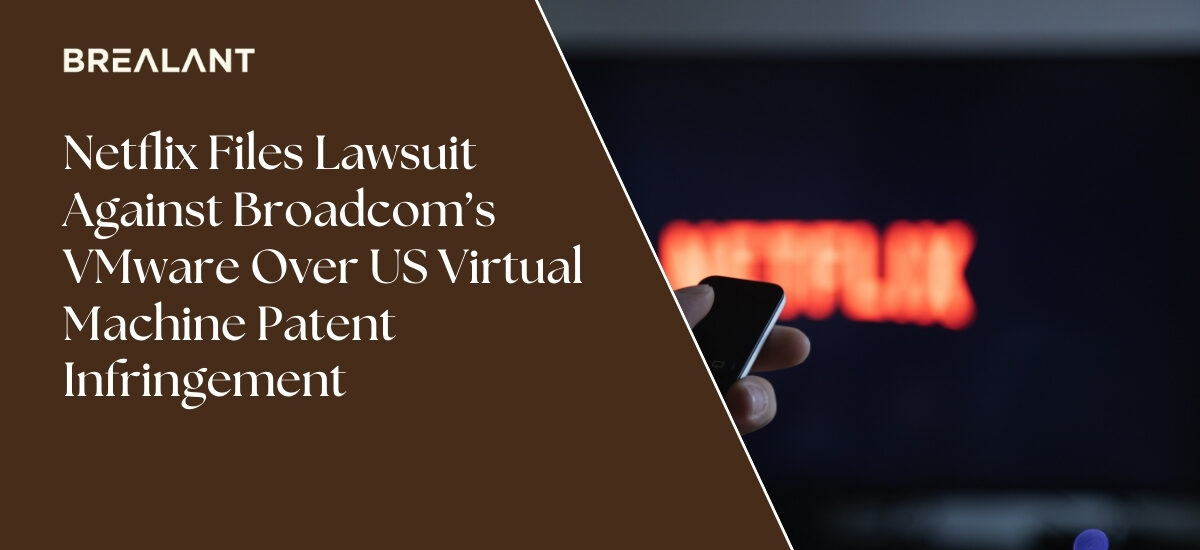



Introduction
Netflix has sued VMware, a Broadcom subsidiary, claiming that the company has violated patents of virtual machine (VM) technology. This is a major event in the IT and entertainment sectors. As businesses in the cloud computing and streaming industries depend more and more on cutting-edge technology to provide services and streamline operations, this legal dispute focuses on the growing tension between them. Let’s read about the patent infringement case.
The global streaming titan Netflix claims VMware has illegally used its intellectual virtual machine management technology. A key element of contemporary cloud computing is virtual machines, which enable several operating systems and applications to operate on a single physical computer. In order to improve its streaming infrastructure and guarantee efficiency, scalability, and dependability for its enormous user base, Netflix has made significant investments in creating unique virtual machine technologies.
Specific patents that Netflix alleges VMware has violated are at the heart of the issue. Although the full scope of the patents has not been made public, it is said that they cover advancements in fault tolerance, workload optimisation, and dynamic resource allocation in virtualised environments—technologies that are essential for any company overseeing extensive cloud operations.
Netflix’s status as a dominant force in the streaming market depends on its ability to provide millions of customers with high-quality video content throughout the globe. To do this, a strong backend infrastructure driven by advanced virtualisation technologies is needed. Netflix has created unique techniques over the years to effectively manage its extensive cloud infrastructure, frequently utilising its collaboration with Amazon Web Services (AWS). Netflix has been able to optimise bandwidth utilisation, lower latency, and expand its services to accommodate changing customer needs thanks to its innovations. These technologies are essential to keeping the business ahead of the competition in the increasingly saturated streaming industry.
The widely recognised virtualisation and cloud computing company VMware is charged with illegally integrating Netflix’s intellectual technology into its products. According to the complaint, VMware’s activities have given the business an unfair competitive edge, allowing it to supply cutting-edge virtualisation capabilities that Netflix asserts are derived from its intellectual property.
In addition to violating patent law, Netflix’s legal team contends that VMware’s claimed infringement jeopardises the innovation ecosystem. Netflix claims that VMware has undermined the incentives for businesses to participate in research and development (R&D) by allegedly abusing proprietary technology without the required licensing.
The verdict in this case may have significant ramifications for VMware, Netflix, and the larger IT sector.
1. For Netflix: Protecting its technical investments depends on successfully defending its patents. A positive decision may strengthen Netflix’s standing as an innovator and establish a standard for the handling of intellectual property in the cloud computing space. On the other hand, a negative result may make it more difficult for Netflix to protect its in-house technology.
2. For VMware: The lawsuit presents a serious obstacle to the company’s ability to conduct business. The business can be subject to severe financial penalties, such as damages and potential royalties if proven guilty of infringement. Additionally, to prevent future infringement, it could have to modify its products, which could interfere with its sales plan.
3. For the Tech Industry: As businesses depend more and more on cloud and virtualisation technology, this case emphasises the rising significance of intellectual property rights in the tech sector. The decision may create a standard for future patent dispute resolution, impacting the tactics of both well-established firms and new ventures.
The case was filed during a period of similar patent issues that are hitting the IT sector. The distinction between inspiration and infringement frequently becomes hazy when businesses push the limits of innovation. The necessity of precise legal frameworks and strong procedures for settling intellectual property issues is shown in this case.
The legal dispute also draws attention to the rivalry between the major tech companies. Although streaming and virtualisation are the two main industries in which Netflix and VMware operate, their reliance on overlapping technology demonstrates how intertwined contemporary business ecosystems are. The case underscores how crucial it is for businesses to own and safeguard their intellectual property when they diversify and enter new markets.
In the digital era, Netflix’s case against VMware is a conflict between innovation and intellectual property that goes beyond simple legal issues. Netflix is making a strong statement about how much it values its technological advancements by suing VMware. As the case progresses, it will be a crucial examination of how the legal system strikes a balance between patent holders’ rights and the larger requirements of the technological ecosystem. The lawsuit shows the high stakes of invention in a society increasingly dominated by technology, regardless of the outcome. Your brand’s safety is your discretion, protect and grow it with Brealant’s tech-led solutions for IP- related aspects.